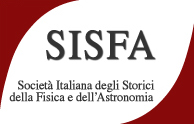Speaker
Description
D’Agostino’s history of physics belongs to the cultural tradition of physicists who have undertaken wide-range researches in the history and foundations of their discipline. More specifically, he inquired into different aspects of scientific practice: technological devices, mathematical languages, theoretical models, and more or less tacit philosophical assumptions.
At first, I would like to sketch some meaningful steps of D’Agostino’s research in the history of physics; then I would like to put his research in context.
In the chronological context of the late twentieth century, and in the cultural context of the history of science over time, two main issues are at stake: the synchronic comparison between D’Agostino and other historians of physics in the last decades of the twentieth century, and the diachronic search for the international and Italian traditions that D’Agostino joined.
In the 1960s, in English-speaking countries, the tradition of historical-critical studies that had emerged in the last decades of the nineteenth century was revived by a new generation of historians-philosophers of science. In the same years, even in Italian scientific and cultural context, D’Agostino's early researches represented both a fresh start and the re-emergence of an already existing tradition. Afterwards, in Italy, the history of physics would have undergone a remarkable professionalization. Nowadays the discipline is not a definite career any more, and the cultural and social cleavage between our time and the last decades of the twentieth century allows us to appreciate the essential features of that context.

